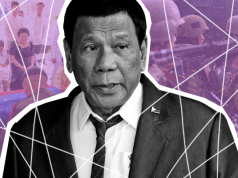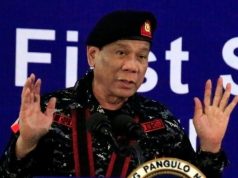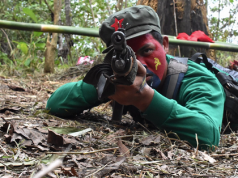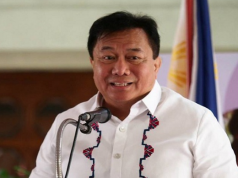MANILA, Philippines – Opposition and activist lawmakers on Monday were alarmed by President Rodrigo Duterte’s pronouncement that he would only listen to the advice of the military and the police and not to what the Supreme Court and Congress would say on when to end martial law in Mindanao.
Several House members feared that the chief executive issued the statement because he was “testing the limits” of his political power and could be paving the way for his dictatorial rule.
“We must start calling him out on his true intentions. He wants to do away with congressional oversight and judicial review. Para steady lang sa pagiging diktador [So he could have a steady way towards dictatorship],” said Ifugao Rep. Teddy Baguilat.
“Is the president saying that he’s willing to violate the Constitution? He is on his way to becoming a dictator,” added Baguilat.
On Sunday, May 28, during a speech at the Armed Forces’ Camp Teodulfo S. Bautista in Brgy. Bus-bus, Jolo, Sulu, the chief executive said that he didn’t know when would martial law end and “as long as the police and the Armed Forces don’t say that the Philippines is already safe, this martial law will continue.”
Duterte said that, “I will not listen to others. The Supreme Court, the congressmen, they’re not here.”
He added that if the military and the police would tell him that it’s not yet the time to lift martial law and the lifting would only make matters worse, then he would have no choice but to continue military rule in Southern Philippines.
READ RELATED STORY: Duterte: Martial law to continue as long as AFP, PNP think PH remains unsafe
‘Citizens must also test limits of their power’
On Monday, Akbayan partylist Rep. Tom Villarin said that if the President was “testing the limits of his powers, citizens must also test the limits of their power to hold this administration accountable, including Congress.”
“We all need to be brave,” added Villarin.
According to Bayan Muna partylist Rep. Carlos Zarate, the decision to declare martial law is not in the hands of the President but is in the Charter that gives voice to Congress and the Supreme Court in deciding on whether military rule should be imposed.
“Wala sa kamay lang ni Pangulong Duterte ang pag-deklara ng martial law. Nasa 1987 Constitution na kailangan may boses din ang Kongreso at Supreme Court.”
For ACT Teachers partylist Rep. Antonio Tinio, if the President was serious in his pronouncement, it was already an indication that he was on his way to becoming a dictator.
“Ang tawag d’yan, dictatorship. At kung seryoso ito, malinaw na magiging diktador na si Pangulong Duterte.”
Meanwhile, Magdalo party-list Rep. Gary Alejano, who recently filed an impeachment complaint against Duterte, said the chief executive’s pronouncement was already tantamount to “a blatant and outright violation of the Constitution.”
“He may be the President, but he is not above the law,” Alejano said.
The lawmaker added that, “The Filipino people should be warned” that the President allegedly had long been planning to “impose martial law in the whole country” and that he was “merely looking now for reasons to justify the imposition.”
“The people must be wary on such attempts of creeping authoritarianism,” Alejano said.
‘Bothersome’
Also, Buhay partylist Rep. Lito Atienza said it was “very bothersome” to hear the President saying that he won’t listen to the Supreme Court and Congress as to when martial law in Mindanao would be lifted.
“We were one of the first to express support for the President’s declaration of martial law in Mindanao since he is the only one in possession of the complete data and intelligence reports on exactly how serious this problem is. But we must emphasize adherence to the rule of law and the Constitutional provisions on this crucial issue,” said Atienza.
“No President should ever be quoted as saying that he will not listen to Congress and the Supreme Court. This is provided for in the 1987 Constitution precisely to avoid a repeat of the abuses of the 1972 martial law,” he added.
Baguilat, Alejano and Villarin are pushing for “transparent” deliberations on Duterte’s martial law declaration through a joint congressional session.
“We are representatives and we have our own sources of information on what’s happening on the ground. It’s therefore important to validate the situation by having the sessions,” Baguilat said.
Villarin said the Constitution mandates the convening of a joint session, which should be public and transparent.
“Sa executive session hindi malalaman ng publiko. Bakit ayaw nilang malaman ng taumbayan [The public will not know if it is done through executive session. Why don’t they like the public to know]?” Villarin said.
‘Compliant with Charter’s requirements’
But the allies of the President believe the response to the violence in Marawi City was appropriate.
Among them is Davao del Norte Rep. Antonio Floirendo Jr., who on Monday supported the President’s continued imposition of martial law in Mindanao, saying it “is compliant with the requirements of the Constitution.”
“His adoption of such constitutional remedy is the appropriate and effective response,” Floirendo said.
“As a Mindanaoan, I believe that President’s Duterte’s leadership is what is needed to bring peace and security in the region,” said the lawmaker.
“Let us also rally behind our troops as they fight terrorists whose only aim is to advance their twisted ideology that aims to destroy the very fabric of our way of life as a nation and as a people,” Floirendo added.
Speaker Pantaleon Alvarez, meanwhile, countered the position of opposition lawmakers and said that the joint session would only be needed if Congress wants to revoke Duterte’s declaration.
He said the Charter only mandates the President to submit a report either in person or in writing to Congress within 48 hours from declaring martial law. But the same Constitution does not order Congress to approve the declaration, according to the Speaker.
Alvarez said that based on the Charter, Congress would only jointly convene if it wants to revoke the proclamation.
“Kung basahin natin iyong provision ng Constitution, ang malinaw na malinaw doon na nakalagay na iyong Presidente, within 48 hours from declaration, shall submit a report in person or in writing to Congress.”
“Ngayon po, ang Kongreso naman, sinasabi po ng provision ng Constitution na iyong Congress, voting jointly, may revoke the proclamation. May revoke the proclamation, hindi po sinasabi na kailangan naming aprubahan.”









